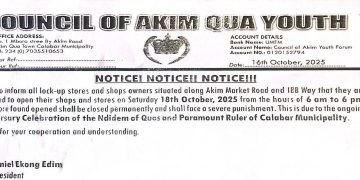By Admin
The Cross River State Governor, Bassey Otu, has flagged off a two-day orientation and induction workshop for newly recruited civil and public servants in the state, reaffirming his administration’s commitment to institutional reforms and improved public service delivery.
The event, held at the College of Health Technology Auditorium in Calabar, was declared open yesterday, with the Governor represented by his Deputy, Peter Odey.
In his address, Governor Otu congratulated the newly employed officers, describing their appointment as a strategic partnership toward advancing Cross River State’s developmental agenda.
He urged the recruits to embrace discipline, integrity, and excellence in their new roles, emphasizing the importance of public trust and professional ethics in service delivery.
“This orientation marks the beginning of your journey in public service,” he stated. “Our administration remains resolute in driving reforms that will restore efficiency, accountability, and pride in the civil service. We expect nothing less than commitment and performance.”
The workshop attracted key government officials, including the Commissioner for Establishments, Training, and Pensions, Dr. Innocent Eteng, who reminded the new entrants of the expectations attached to their roles. “You have been selected based on merit. This government expects you to be solution providers and not part of the problem,” he said.
The Chairman of the Cross River State Civil Service Commission, Owan Enoh, in his goodwill message, emphasized the role of a revitalized civil service in ensuring policy implementation and governance continuity. He also highlighted recent recruitment reforms and merit-based processes that guided the current intake.
Also speaking, the State Accountant-General, Helen Essien, encouraged the inductees to be financially prudent and comply with all service financial regulations, stressing the need for transparency in handling public resources.
The two-day orientation is expected to cover core modules such as public service rules, financial regulations, ethical conduct, e-governance tools, and performance monitoring.
The new recruits, numbering over 300, were selected through a rigorous process aimed at filling critical manpower gaps in the state’s ministries, departments, and agencies (MDAs).
























